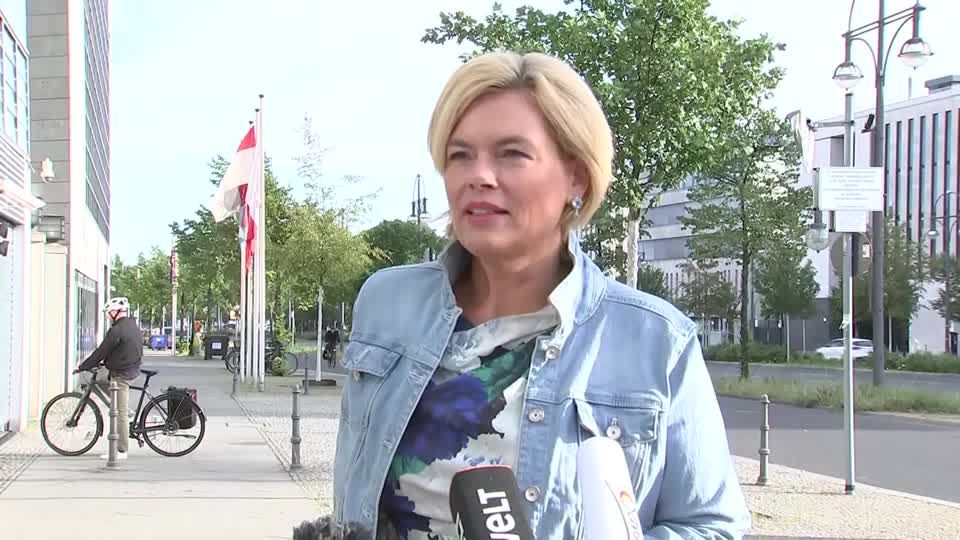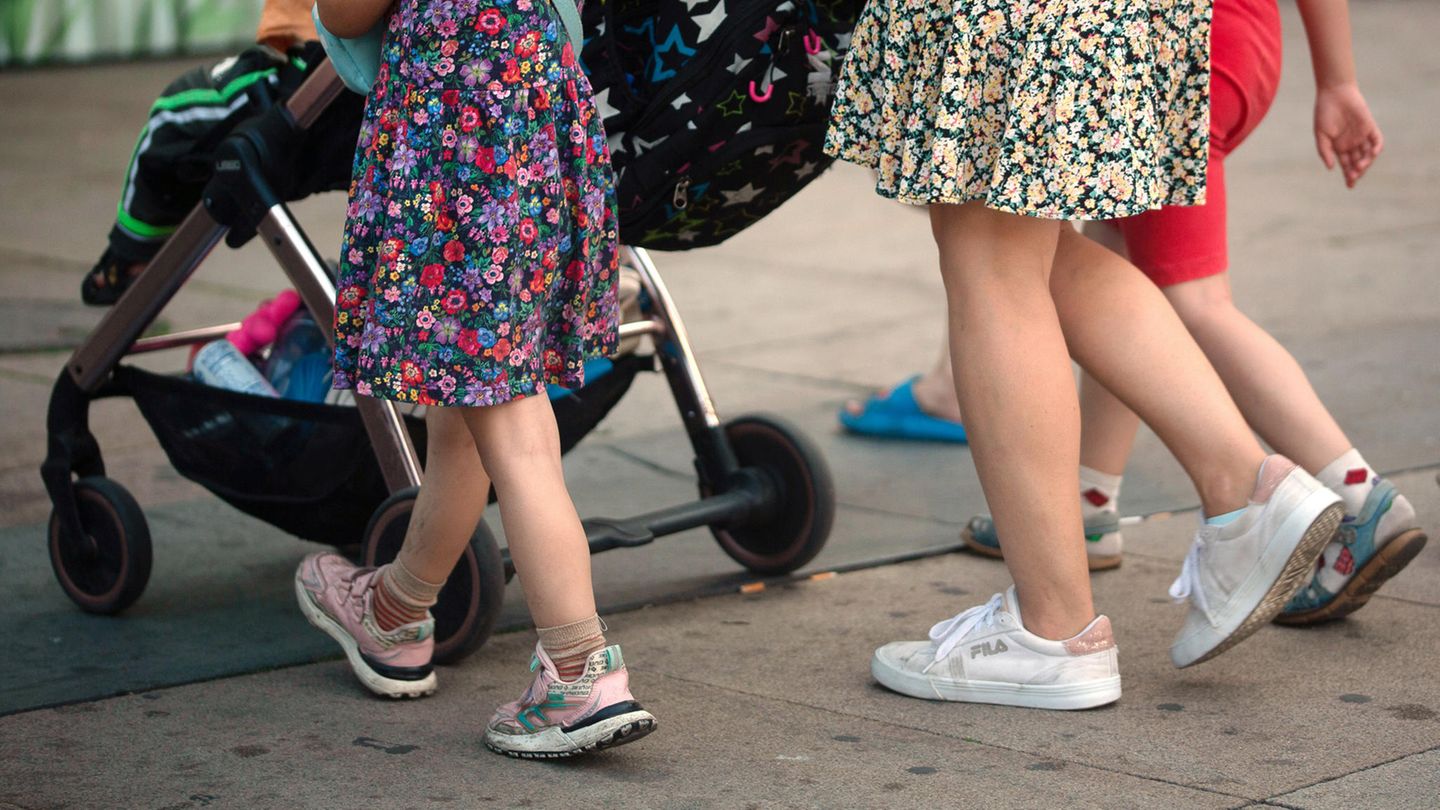Basic child security can come – at least if the traffic light coalition has its way. The agreement came after an hour-long night session with Chancellor Scholz. But there could still be changes.
She was the reason for months of trouble between the Greens and the FDP: Now the traffic light coalition has agreed on basic child security. Some of the negotiations were “really tough,” said Family Minister Lisa Paus (Greens) when presenting the results on Monday in Berlin. “But it was worth it.” According to Paus, additional costs of 2.4 billion euros are initially estimated for the introduction of basic child security in 2025. Up to 5.6 million families threatened by poverty and their children would receive the benefits faster, easier and more directly. Among them are millions who did not previously know that they were entitled to them. The result is the most comprehensive social reform in many years.
Finance Minister Christian Lindner (FDP) assumes that the federal government will not be able to finance any further major social reforms for several years after the basic child security system. Basic child security will cost around 400 million euros more in 2025 than previously planned. “This further increases the need for action that we will have in the 2025 budget,” he said. “Which is why I venture the prognosis that, looking ahead to the next few years, basic child security will be the last major social reform that still fits into the federal budget.”
Basic child security: That includes it
The Greens and the FDP had been arguing about the financing for months and finally agreed on Monday night. Family Minister Paus initially wanted 12 billion euros per year for the project, later spoke of two to seven billion. Finance Minister Lindner named a sum of only 2 billion euros as a “note item”.
After the agreement, Linder said that there would be no general improvements in performance for parents who were not employed. The best way to overcome poverty is to work.
In their coalition agreement, the SPD, the Greens and the FDP agreed to introduce basic child security. The plans are as follows:
- Previous benefits such as child benefit, benefits from the basic income for children or the child allowance are to be bundled. Previously, the benefits sometimes had to be applied for from different authorities in different ways – families are often not even aware that they are entitled. According to estimates by the Federal Ministry for Family Affairs, the child supplement only reaches about every third eligible child. Mathematically, about 1.5 million children go away empty-handed.
- The basic child security should have two components. A guaranteed amount that is the same for all children, regardless of how much the parents earn. It should be at least the amount of the current child benefit, i.e. 250 euros. It is planned that children who are adults but are still studying or in training will receive this guaranteed amount directly. The second part then depends on the parents’ income and is an additional contribution. The less the parents earn, the higher it should be.
- This additional contribution is intended to replace the previous children’s citizenship allowance, i.e. what families who receive citizenship allowance receive monthly for their children. Today’s child allowance of a maximum of 250 euros, which goes to families who do not receive basic income but have very little income, should also be included in this additional contribution. This also applies to parts of the so-called education and participation package. With this, children from poorer families are financially supported with music lessons, sports clubs or school trips.

“Want to inform the parents via push message about basic child security”
The head of the family funds, Karsten Bunk, has given details of how the implementation of the planned basic child security should look like in the future. For this purpose, 405 local contact points are planned, so-called family centers, he told Business Insider. With them, the previous course to different offices for different services should become superfluous. “Previously, for example, child benefit or child allowance had to be applied for separately in the family benefits office because the tax data from an application for child benefit was not allowed to be merged and used with the social law data of the child allowance,” he said. “Parents had to go to the family benefits office or other institutions several times and fill out multiple applications. With basic child security, there will only be one.” The Ministry of Family Affairs initially did not comment publicly on the details.
The family benefits offices of the Federal Employment Agency support parents in applying for a variety of family benefits, such as child benefit or child allowance. They should also play a central role in the planned basic child security scheme.
According to family treasurer Bunk, the families can also access the benefits without any bureaucracy. “We want to inform parents about basic child security via push message,” he said. “In the future, we will set up our Internet portal in such a way that it can calculate twelve-month approval packages for all services on the basis of the basic child security check and send them as a push message.” Bunk anticipates administrative expenses for the implementation of basic child security of 500 million euros for the starting year 2025.
Compromise clears the way for Growth Opportunities Act
Paus announced that the legislative process would now begin quickly. If the law is to come into force at the beginning of 2025, the procedure must now be initiated quickly with an imminent association hearing. The Federal Cabinet could possibly deal with this as early as mid-September.
The compromise on basic child security now also clears the way for the planned growth opportunities law from Lindner’s ministry, which Paus had blocked because of the dispute. You have “no objections” to the law, said Paus. Lindner expressed the expectation that it would be decided at the forthcoming cabinet meeting in Meseberg.
Source: Stern
I have been working in the news industry for over 6 years, first as a reporter and now as an editor. I have covered politics extensively, and my work has appeared in major newspapers and online news outlets around the world. In addition to my writing, I also contribute regularly to 24 Hours World.




